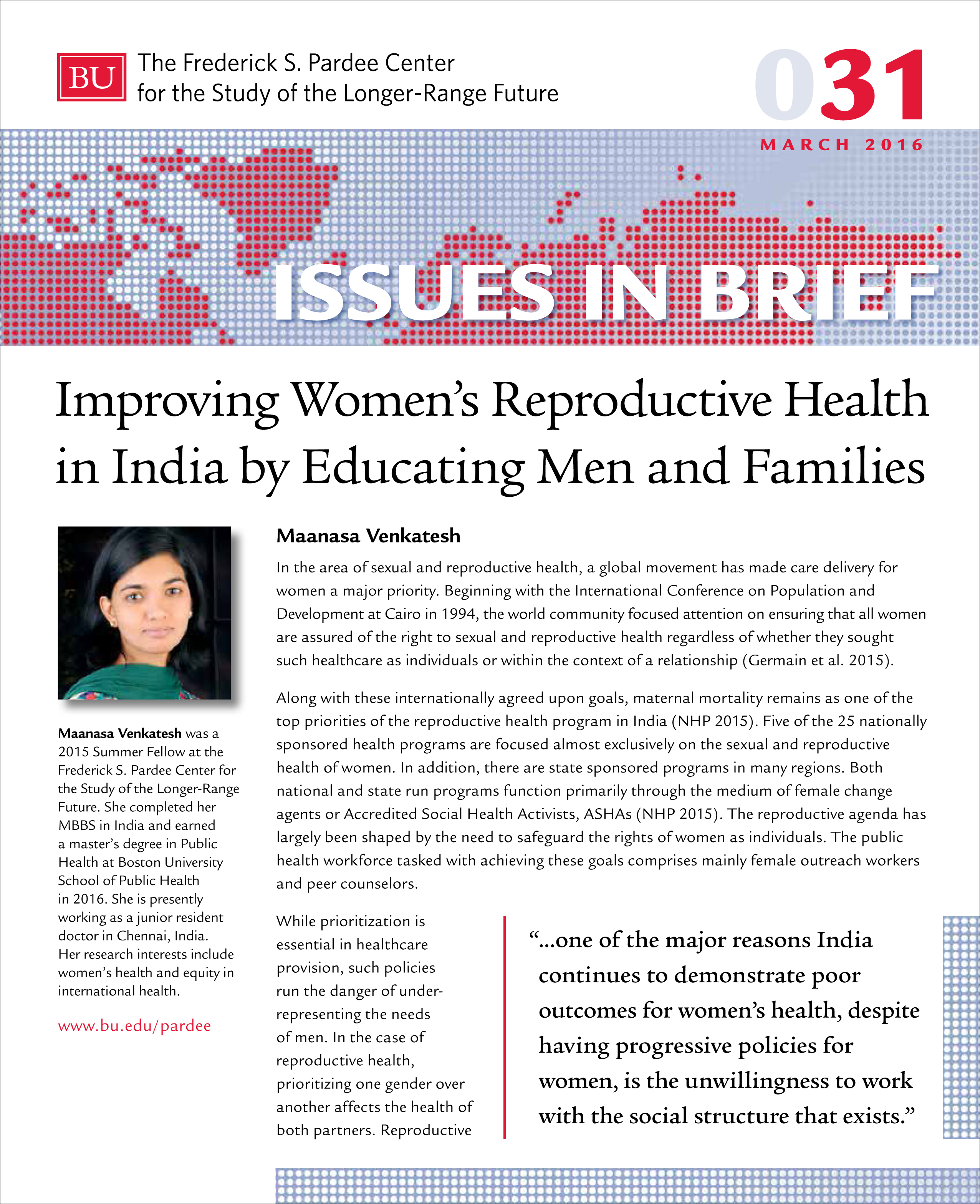New Paper: Improving Women’s Reproductive Health in India by Educating Men and Families

The Frederick S. Pardee Center for the Study of the Longer-Range Future has published a new paper in its Issues in Brief series. The paper, titled “Improving Women’s Reproductive Health in India by Educating Men and Families,” was written by 2015 Pardee Graduate Summer Fellow Maanasa Venkatesh.
In the paper, Venkatesh argues that reproductive health care for women – as well as men – would improve in India if health care providers included men and marital family members in discussions and education about women’s reproductive health issues. She cites research that has shown that effective reproductive health programs consider cultural decision-making norms and include the partners and other family members who are directly involved in decisions about seeking reproductive health care. She writes “There is discomfort acknowledging that the role of traditional social norms and decision-making dynamics don’t fit with widely-held perceptions of modern female agency. Yet public health efforts have been found to be most effective when they understand and work with existing social structures to achieve change through education and dialogue.”
Maanasa Venkatesh was a 2015 Graduate Summer Fellow at the Frederick S. Pardee Center for the Study of the Longer-Range Future. She completed her MBBS in India and earned a master’s degree in Public Health at the Boston University School of Public Health in 2016. She is presently working as a junior resident doctor in Chennai, India. Her research interests include women’s health and equity in international health.
Click here to download the PDF. Hard copies are free and can be requested by sending an email to pardee@bu.edu.